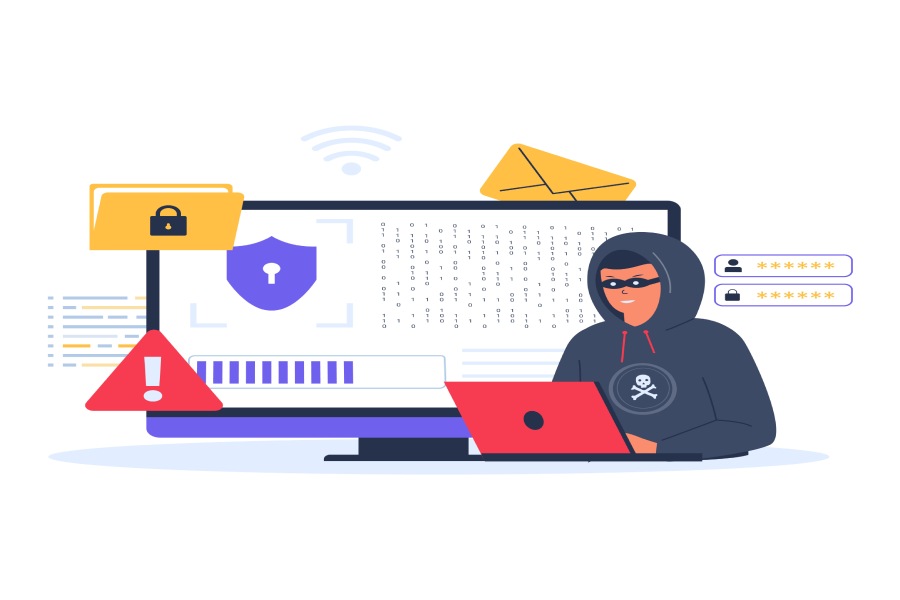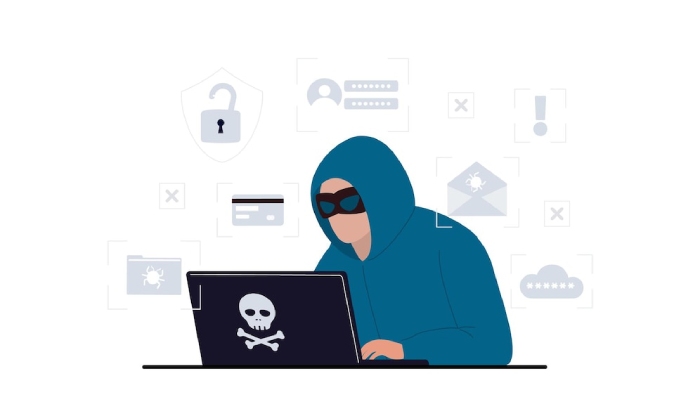In 2021 alone, there was a 600% rise in cyberattacks that organizations across the globe faced, with governmental organizations, educational institutions, healthcare centers, and even retail stores being targeted. The attacks have increased by 66% within the last 12 months, and these are only bound to grow with the ongoing Russia-Ukraine conflict.
The Anticipation of a Cyber War
Since Russia has decided to leave no stone unturned to bring the odds in its favor, it has started direct cyberattacks on the Ukrainian government and financial organizations. With a technologically advanced military, Russia is at an advantage in waging war through cyberattacks. Cybersecurity and Infrastructure Security Agency (CISA) states that cyber wars are used to weaken and disrupt a country’s overall functioning. And Russia has managed to cause considerable damage to the Ukrainian cyber climate. In such a scenario, it is significant that organizations of all stature take adequate measures to improve their cybersecurity posture.
Global Consequences of Cyber Threats
Russia utilized its military’s cyber strength to carry out hostile cyberwar across the globe as soon as it attacked Ukraine. While Russia’s war against Ukraine had been going on since 2014, a new attack, known as the wiper, was launched in February 2022. This attack was detected by both the US and UK intelligence services.
The wiper attack was disguised as a malware attack, but it wiped the system disk clean, making it inoperable. Other attacks that Russia potentially carried out included Distributed Denial of Service (DDoS), website defacement, including the government websites where the attackers left threatening messages directed at the government, and malware attacks. While government, hospitals, and educational facilities were the primary targets, industries including food, water, and transportation were also targeted.
In the face of such attacks, organizations and individuals have been asked to monitor their cyber behaviors and take precautions carefully. If you are focused too heavily on Ukraine, you might delay setting up your defense and may fall victim to cyber threats. Be warned and prepare carefully against misinformation and cyber threats, including malware, ransomware, DDoS, and scam attacks. Denying the reality that such attacks can happen to you too in these unprecedented times will only cause the risk to rise and increase your possible collateral damage.
Cyber Threats Expected to Rise
With Russia preparing targeted attacks, there are some cyberattacks that might be on the rise, and their effects will be seen in the coming months.
- Ransomware: CISA defines ransomware as malicious software that encrypts files on a device. These encrypted files are then used to demand ransom from the victim. Once a system has been infected, there is a high possibility that connected systems will also be infected. It is advisable to remove systems connected to the device if you suspect an attack. Malware, also known as malicious software, is any software that might cause damage to the network or system security. Ransomware is also a type of malware.
- Third-party Threats: Your device might not just be in danger of cyberattack through network or emails. It may also be victimized through a third party that might be connected to your system. The attacker can enter your system through the system of a third party that may be your business partner and maybe privy to confidential information. This will lead to an attack through the implantation of malicious software on your organization’s interconnected systems.
- Wiper: The wiper malware, WhisperGate, was deployed in the January of 2022 against several Ukrainian organizations. In February, another wiper malware, HermeticWiper, attacked Ukraine. These attacks were designed to wipe Ukrainian systems causing loss of important information in several important organizations. Such techniques, if deployed in the systems of large corporations, can bring entire business operations to a halt.
- Spear Phishing: Spear phishing involves scamming organizations or individuals through an email or other electronic communication strategy. Although it is mainly used to cause financial loss, it may also install malicious software in the victim’s system to render it useless.
Safeguarding Your Information Assets in These Unprecedented Times
Although there is no guarantee that the war will not impact the kind of cyber threat you experience, you can reduce the damage caused considerably by taking precautionary steps. CISA warns that new types of cyberattacks launched by Russia have become the current highlight on the cyber security front. To be prepared for such attacks, there are some essential guidelines that you can follow.
- Multi-Factor Authentication (MFA): Validation of different networks that have access to your system or device is necessary to ensure that you do not fall victim to cyberattacks. Along with that, you should activate MFA for all the organizational accounts. Although this can be time-consuming, in the long run, it is more beneficial to keep your system safe from the loss of critical and sensitive data.
- Updated Software: Keep all your systems updated, especially the updates that address email security issues and other types of vulnerabilities.
- Beware of Suspicious Links: You may receive dozens of emails containing hyperlinks taking you to other websites. Beware of what kind of links you click on. When clicking on email links, verify the email sender. You can also directly go on the website to look up the information you need instead of clicking on the link directly through the email.
- Report Suspicious Activity: If you doubt that a link or software might be harmful and might put you at risk of a cyber threat, report it. This will not only help you deal effectively with the attack, but it will also prevent other individuals and organizations from falling victim to the same or similar attacks.
- Be prepared: While world security, both online and offline, is at risk, you have to prepare for the worst. Learn and incorporate healthy online behavior, including password protection, handling suspicious links, MFA activation. It would be best if you also learned how to report such attacks and take help from your cyber security provider if you fall victim to such an attack.
Final Words
With an increase in the severity of cyber-warfare, the consequences can lead to severe economic and personal loss. Even though a great deal of damage has already been done globally, it is prudent that you learn to protect yourself and your organization from any upcoming threats.


